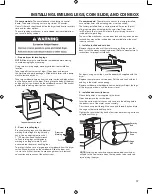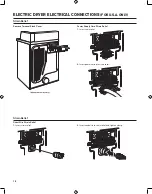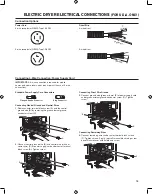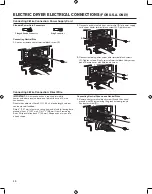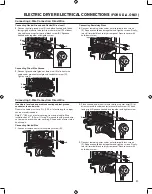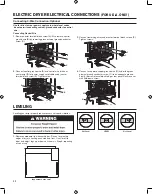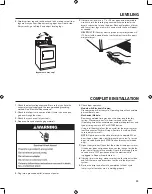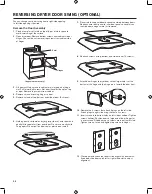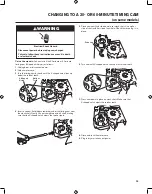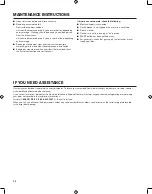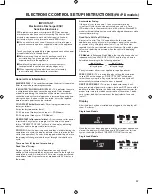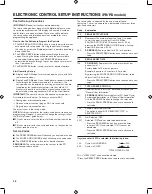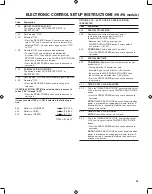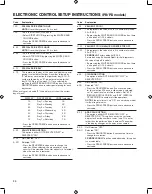
15
DRYER VENTING REQUIREMENTS
1.
Remove red cap from gas pipe on back of dryer.
2.
Connect gas supply to dryer. Use a pipe thread compound
approved for the type of gas supplied. If flexible metal tubing
is used, be certain there are no kinks.
If necessary for service, open the toe panel. Use a putty knife
to press on the toe panel lock located at the center top of the
toe panel. Pull downward on the toe panel to open. Toe panel
is hinged at the bottom.
3.
Open the shut-off valve in the gas supply line and make sure
the dryer has its own gas supply opened.
4.
Test all connections by brushing on an approved noncorrosive
leak-detection solution. Bubbles will show a leak. Correct any
leaks found.
Make Gas Connection
GAS SUPPLY CONNECTION
The outside end of main vent should have a sweep elbow directed
downward.
If main vent travels vertically through the roof, rather than through
wall, install a 180° sweep elbow on end of vent at least 2 ft.
(610 mm) above surface of roof.
The opening in wall or roof shall have a diameter 1⁄2" (13 mm)
larger than vent diameter. Vent should be centered in opening.
Do not install screening over end of vent for best performance.
12" min.
(305 mm)*
A main vent can be used for venting a group of dryers. The main
vent should be sized to remove 5663 l/min. (200 CFM) of air per
dryer. Large-capacity lint screens of proper design may be used in
main vent if checked and cleaned frequently. The room where the
dryers are located should have make-up air equal to or greater than
CFM of all the dryers in the room.
Back-draft dampers are available from your distributor and should
be installed in the vent of each dryer to keep exhausted air from
returning into dryers and to keep exhaust in balance within main
vent. Unobstructed return air openings are required.
Although usually each single-load dryer should have an
unobstructed outdoor air opening of 24 in.
2
(154 cm
2
) (based
on 1 in.
2
[6.5 cm
2
] per 1,000 Btu [252 kcal]), common make-up air
openings are also acceptable. Set up common openings so
the make-up air is distributed equally to all of the dryers. Keep
in mind that the coverage area must be increased by 33% to
account for the use of registers or louvers over the openings.
Also, make-up air openings should not be installed near the
location where exhaust vents exit the building.
Each vent should enter the main vent at an angle pointing in
the direction of the airflow. Vents entering from the opposite side
should be staggered to reduce the exhausted air from interfering
with the other vents.
The maximum angle of each vent entering the main vent should be
no more than 30°.
Keep air openings free of dry cleaning fluid fumes. Fumes create
acids which, when drawn through the dryer heating units, can
damage dryers and items being dried.
A clean-out cover should be located on the main vent for periodic
cleaning of the vent system.
If an Exhaust Hood Cannot be Used
Multiple Dryer Venting
24" min.
(610 mm)
* Minimum clearance above any
accumulation of snow, ice, or
debris such as leaves
30˚ max.
air flow
Air Flow

















